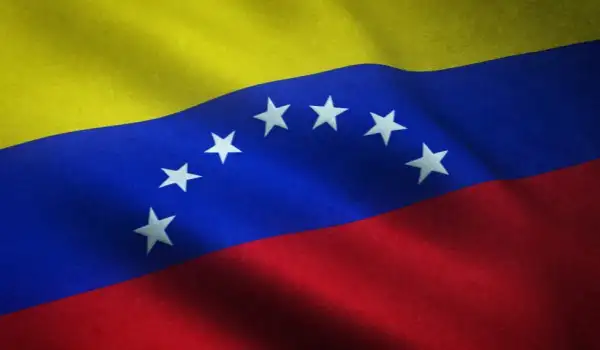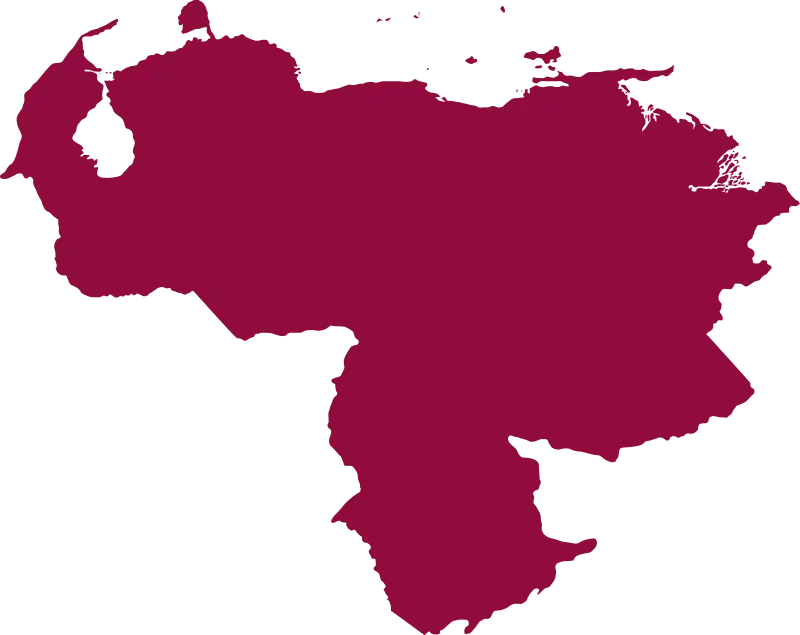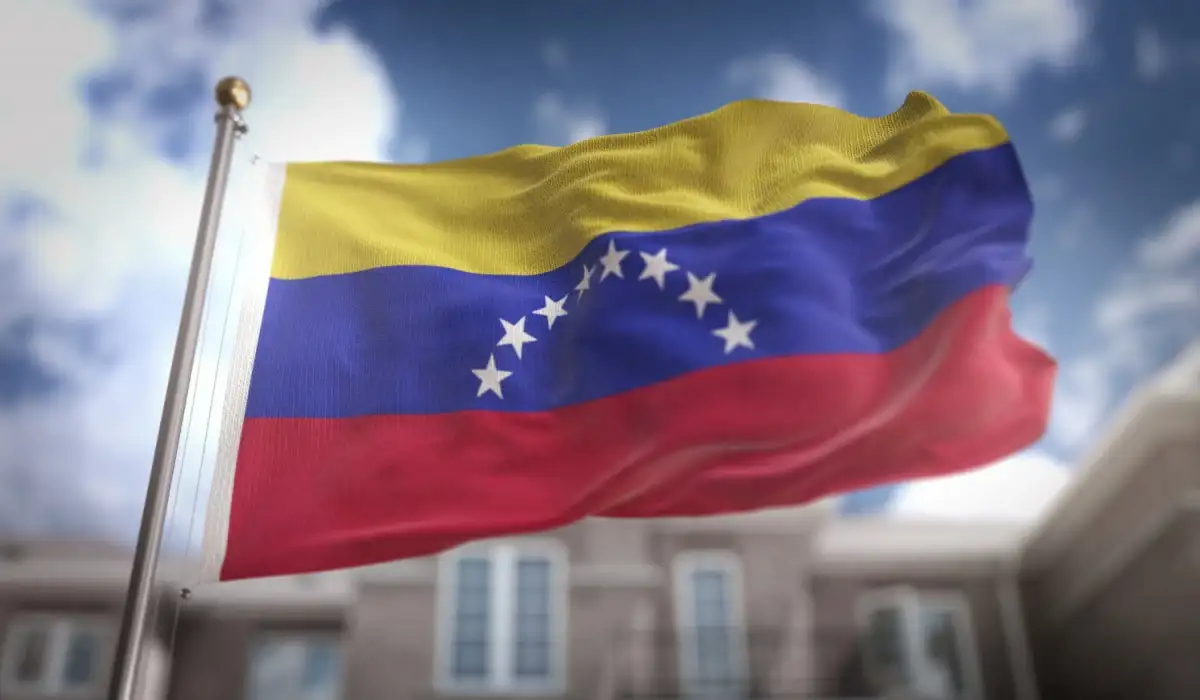'Celebrated each year on the 5th of July, Venezuelan Independence Day is a vibrant celebration brimming with national pride and festive activities. This significant day marks the inception of Venezuela's fight to free itself from Spanish colonial rule - a journey that paved the way for the birth of a new nation.
The Venezuelan struggle was part of a larger wave of rebellions across Latin America in the 19th century. The road to independence, however, was a long one, filled with conflict and adversity, culminating in the establishment of the Republic of Gran Colombia after ten tumultuous years. Although the Republic was dissolved in 1831, its influence was felt across Latin America.
Important Facts About Venezuela Independence Day
Bolivarian Republic of Venezuela

Venezuela's Independence
Celebrated annually on July 5
Background
On this day, Venezuelan leaders signed their declaration of independence, formally breaking away from Spanish colonial rule.
Symbol
The Independence Day is often symbolized by the Venezuelan flag, sometimes depicted with eight stars instead of the original seven, representing the eight original provinces that made up the new independent nation.

Area
53,841 sq mi
Capital
Caracas
History of Venezuela Independence Day
The 5th of July holds a place of profound importance in Venezuelan history as it's the day the nation celebrates its liberation from Spanish colonization. This day, known as Venezuela's Independence Day, symbolizes the country's hard-fought victory over centuries of foreign rule and oppression.
Unfolding around the beginning of the 19th Century, the independence story of Venezuela is a testament to the power of resolve and determination. Much of South America, including Venezuela, was under the rule of Spain. The harsh treatment of the indigenous people and locals bred a powerful desire for sovereignty.
The first major stride towards independence occurred when a local revolutionary group in Caracas established a governing body, known as a junta, on April 19, 1810, openly rejecting Spanish control. A significant milestone was reached on July 5, 1811, when the Venezuelan congress adopted the Declaration of Independence, recognizing Venezuela as South America's first independent country.
The pivotal figure in this fight for freedom was Simon Bolivar, fondly referred to as El Libertador (The Liberator). Bolivar became both a strategic military leader during the Venezuelan War of Independence and an inspiring political figure, motivating people towards the goal of self-governance.
The path to independence was fraught with difficulty. Spain refused to give up its control without a fight, leading to conflicts that threatened the stability of the newly born nation. An earthquake in 1812, which was widely seen as divine punishment, caused tremendous damage. However, Bolivar utilized these hardships to galvanize the people, issuing his historic "War to the Death" declaration.
After years of bitter struggle, marked by alternating triumphs and defeats, the crucial Battle of Carabobo was fought on June 24, 1821. Under Bolivar's leadership, the Venezuelan troops achieved a victory which ultimately ensured their independence.
Today, Venezuelans proudly commemorate Independence Day as a national holiday, featuring vibrant festivities such as parades, musical performances, feasting, and fireworks.
In essence, understanding the history of Venezuela's Independence Day is key to appreciating its intrinsic value. It's a day that resonates strongly with national identity, rooted in the principles of courage, resilience, and unity. These values continue to shape the nation and its people, serving as a constant reminder of their past and beacon for their future.
Venezuela Independence Day Timeline
Arrival of Christopher Columbus
Christopher Columbus, during his third voyage to the American Continent, discovered the Venezuelan coast.
Founding of Caracas
Diego de Lozada founded the city of Caracas, which became the economic and cultural hub of the region.
First Venezuelan Junta
Venezuela seizes the opportunity to claim sovereignty and declare independence from Spain, which begins the Independence process.
Venezuelan Declaration of Independence
The Venezuelan War of Independence officially begins with the signing of the Venezuelan Declaration of Independence.
First Republic of Venezuela Falls
A devastating earthquake and Spanish reconquest lead to the fall of the First Republic of Venezuela.
Second Republic and Campaña Admirable
Simon Bolivar establishes the Second Republic during the Admirable Campaign.
Fall of the Second Republic
The Second Republic falls to royalist forces once again.
Reestablishment of the Republic
Simon Bolivar returns from exile and reestablishes the Republic.
Battle of Carabobo
The decisive battle of Carabobo took place leading to the complete independence of Venezuela.
Creation of the Third Republic
After the collapse of Gran Colombia, Venezuela forms as an independent country, marking its official start as a sovereign nation.
Traditions and Customs of Venezuela Independence Day
Flag Raising Ceremony
Kicking off Venezuela's Independence Day is a poignant raising of the nation's flag. In this symbolic display, various societal groups partake, honoring the dawn of Venezuela's liberty.
Military Parades
Looking forward to the majestic military parades is a conventional aspect of the celebration. Venezuela's military strength and order is showcased through displays of tanks, naval vessels, aircraft and horseback units, all followed by various entertaining spectacles.
Public Speeches and Gatherings
Officials publicize commemorative speeches honouring the brave individuals who played key roles in Venezuela's fight for independence. Often times, the President's address is transmitted live on national airwaves.
Fireworks Displays
Lively pyrotechnic shows color the Venezuelan night skies on Independence Day. This tradition encapsulates the jubilation and national pride held by Venezuelans, and helps set a celebratory tone.
Festive Traditional Foods
Independence Day offers an opportunity to indulge in Venezuelan culinary delights. Traditional fare like arepas, pabellon criollo, and tequeños are cooked up by family members, while street-side vendors cater popular Venezuelan dishes.
Cultural Exhibitions
As part of the holiday, art, music, dance, and other cultural performances are prevalent. Public plazas and parks become stages where traditional Venezuelan dances and melodies are performed, offering a glimpse into the nation's rich cultural heritage.
Church Masses
Faith is deeply interwoven with Venezuelan life, and Independence Day sees special church services dedicated to the nation's independence heroes. These solemn assemblies are frequented by citizens, military personnel, and government officials alike.
Ideas to Celebrate Venezuela Independence Day
Experience Traditional Venezuelan Cuisine
Celebrate Venezuela's Freedom Day by indulging in its traditional culinary delights. Try arepas, a kind of corn bread filled with an assortment of fillings, and Pabellón Criollo, a flavorful combination of shredded beef, beans, rice, and fried plantains.
Hosting a Venezuelan Music and Dance Night
Make your Venezuelan Independence Day memorable by organizing an evening filled with Venezuelan rhythms and dance steps. Get the party going with genres like Joropo or Merengue and groove to the energetic moves of the well-known Tambor dance.
Discovering Venezuela through Movies
Take the opportunity this Independence Day to delve into Venezuela's rich culture and history through its cinema. Watching an array of Venezuelan films or documentaries can give you a nuanced understanding of the nation's vibrant past and the resilience of its people.
Creating a Cultural Display
This Independence Day, create a captivating showcase of Venezuela's diverse heritage. Use displays and presentations to interpret the symbolism of their flag, national bird, the Turpial, national flower, the Orchid, and other distinct symbols.
Learn about Venezuela’s History
Immerse yourself in the powerful history of Venezuela, from its fight for liberty to its evolution post-independence. Make this day about educating yourself and those around you, deepening your knowledge of the country and its resilient citizens.
Social Media Appreciation Post
Show your solidarity with the people of Venezuela this Independence Day by sharing an appreciation post on your social media platforms. You could share fascinating trivia about the country, upload photos or artwork, or just share your reflections on the value of liberty.
8 Interesting Facts About Venezuela
Highest Waterfall in the World
The tallest waterfall across the globe, Angel Falls, graces Venezuela with its presence. This breathtaking natural spectacle boasts a towering height of 979 meters (3,214 ft), and a plunge measuring 807 meters (2,648 ft). You can find this watery marvel situated in the heart of the Canaima National Park, set within the Gran Sabana region of Bolívar State.
Country of Miss Universes
Renowned worldwide for its beauty queens, Venezuela takes the crown for holding the most victories in international beauty pageants. With seven Miss Universe, six Miss World and eight Miss International titles under its belt, this Latin American nation truly is a country of Miss Universes.
Oil Rich Nation
When it comes to oil-rich nations, Venezuela surpasses them all. The country boasts the highest confirmed oil reserves across the planet as confirmed by OPEC, with a staggering estimate of 300 billion barrels – beating even Saudi Arabia’s reserves.
Diverse Wildlife
As one of the world's 17 identified megadiverse nations, Venezuela prospers with a plenitude of flora and fauna. Housing over a quarter of the Amazon Rainforest and approximately 1,400 bird species, Venezuela is a treasure trove of biodiversity.
Unique lightning phenomenon
Venezuela houses a one of a kind natural light show over the Catatumbo River that takes place nearly 260 annual evenings. This fiery performance graces the skies up to 280 times per hour and can be spotted from incredibly lengthy distances.
A bridge that doesn't reach the sea
In Venezuela's state of Zulia, there's an intriguing attraction: The General Rafael Urdaneta Bridge. The bridge traverses the vast expanse of Maracaibo Lake, one of Latin America's largest lakes. This gives an optical illusion of a roadway extending into the vast waters of the sea.
Arepa: National Dish
National dishes often define a country's culinary stance – for Venezuela, it's the arepa. This corn-dough based bread is typically filled with an assortment of ingredients including cheese, ham, chicken, and beef, and enjoyed at any given meal.
Land of Baseball
Venezuela isn't known to follow the Latin American trend of soccer fandom – it focuses on America's favorite pastime, baseball! This baseball-loving nation has produced a number of Major League Baseball stars, including the likes of miguel Cabrera, Felix Hernandez, and Jose Altuve.
Venezuela Independence Day FAQs
Next Venezuela Independence Day Dates
| Year | Date | Day |
|---|---|---|
| 2023 | July 5th | Wednesday |
| 2024 | July 5th | Friday |
| 2025 | July 5th | Saturday |
| 2026 | July 5th | Sunday |
| 2027 | July 5th | Monday |
| What is the pattern? | Every July 5th | |
Venezuela Independence Day Word Search
- Venezuela
- Independence
- Bolivar
- Caracas
- Revolution
- Battle
